Mini ITX vs Micro ATX Computer Cases Differences and Comparisons

micro atx vs mini itx Mini Itx, Sound Card, Atx, Motherboard, Decent
Micro-ATX, Mini-ITX, and ATX motherboards each offer unique advantages and cater to different needs in the PC building landscape. Micro-ATX strikes a balance between size and functionality, Mini-ITX maximizes space efficiency, and ATX offers the highest level of expandability and features. The right choice depends on your individual.
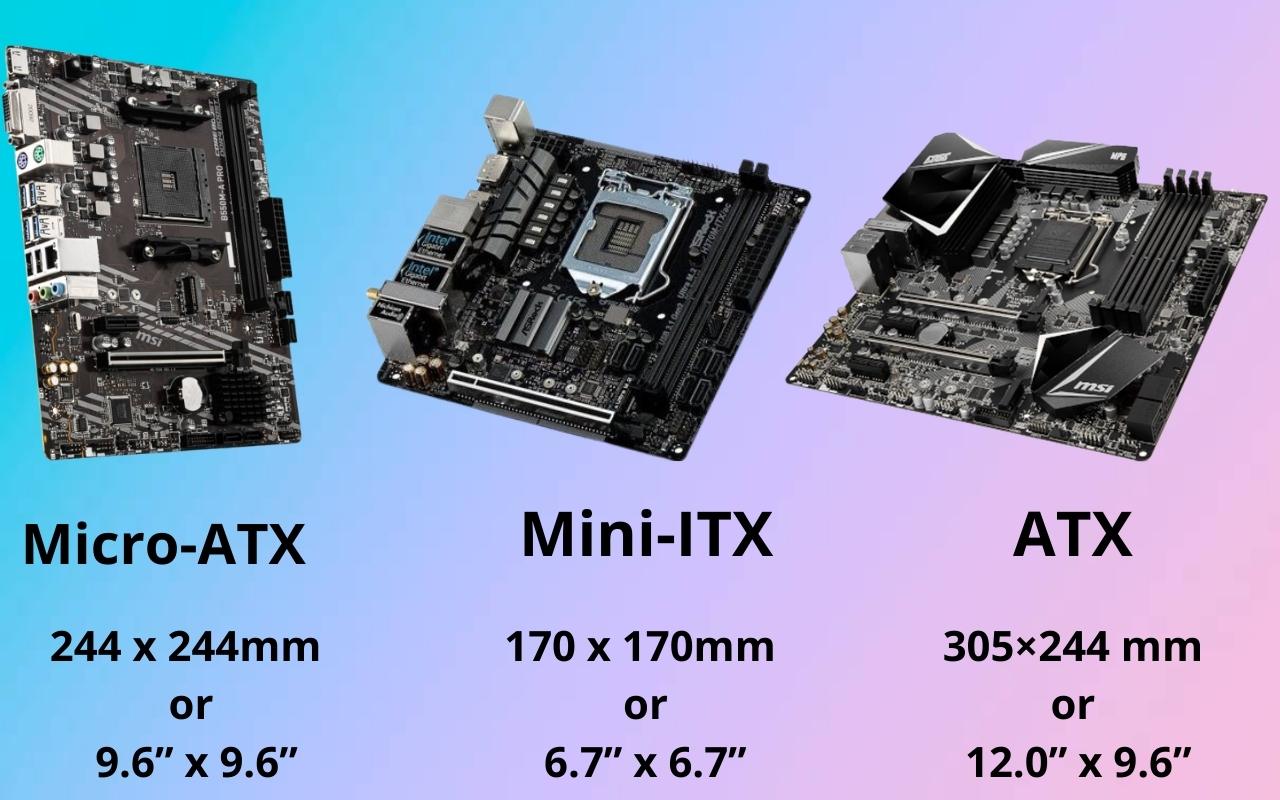
MicroATX Vs MiniITX Vs ATX Which One Should You Choose?
Mini ITX: 6.7" x 6.7" Inches / 170 x 170mm More about form factors: After describing their sizes, we can see that the largest among these motherboards is the ATX, Micro ATX takes second place, and the tiniest among them is Mini ITX. ATX and Micro ATX motherboards resemble each other and have the same amount of width.
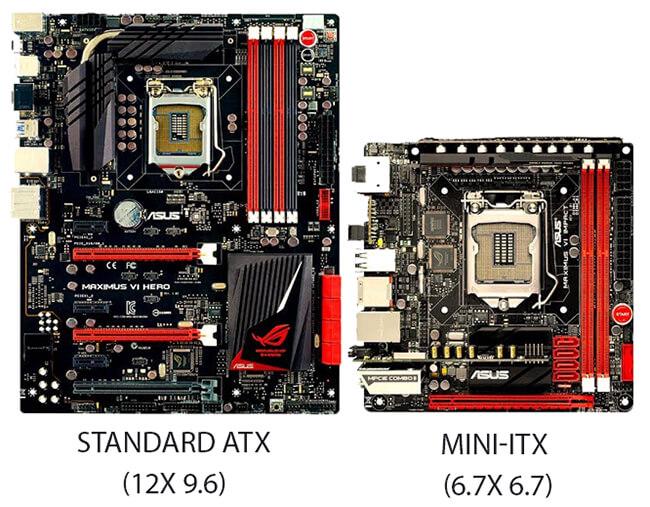
Micro ATX vs Mini ITX vs ATX Which Size is Right for You?
Based on the ATX design but scaled down to 244mm by 244mm (9.6 inches by 9.6 inches) in size, Micro ATX motherboard lose little in functionality but allow PC builders to use smaller cases for their builds. To accommodate the reduced size, the Micro ATX design typically has a reduced number of ports and expansion slots.

Micro ATX Vs Mini ITX Vs ATX What’s The Difference Phenom Builts
The first thing you'll notice is the difference in size. Motherboard Size Comparison Chart - XL-ATX, E-ATX, ATX, M-ATX, ITX Compared to an ATX motherboard, an ITX one is petite and minuscule, almost laughably small. mATX is square in the middle — not too big but certainly not too small either.
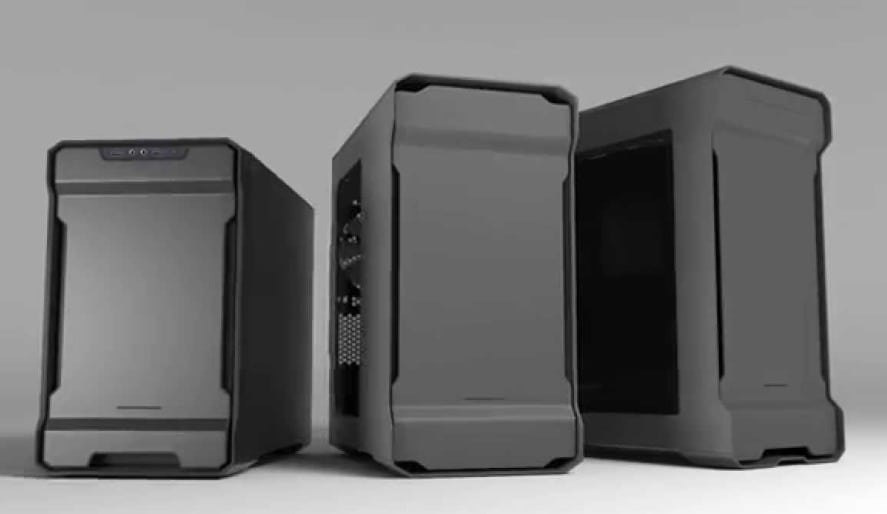
Mini ITX vs Micro ATX Computer Cases Differences and Comparisons
Size: Motherboard size comparison As you can see from the above measurements, ATX is the largest format of all. The Micro-ATX is approximately 244×244 mm, which makes it a little smaller. And last but not least, there comes a Mini-ITX motherboard, which is the smallest and most demanding above all.
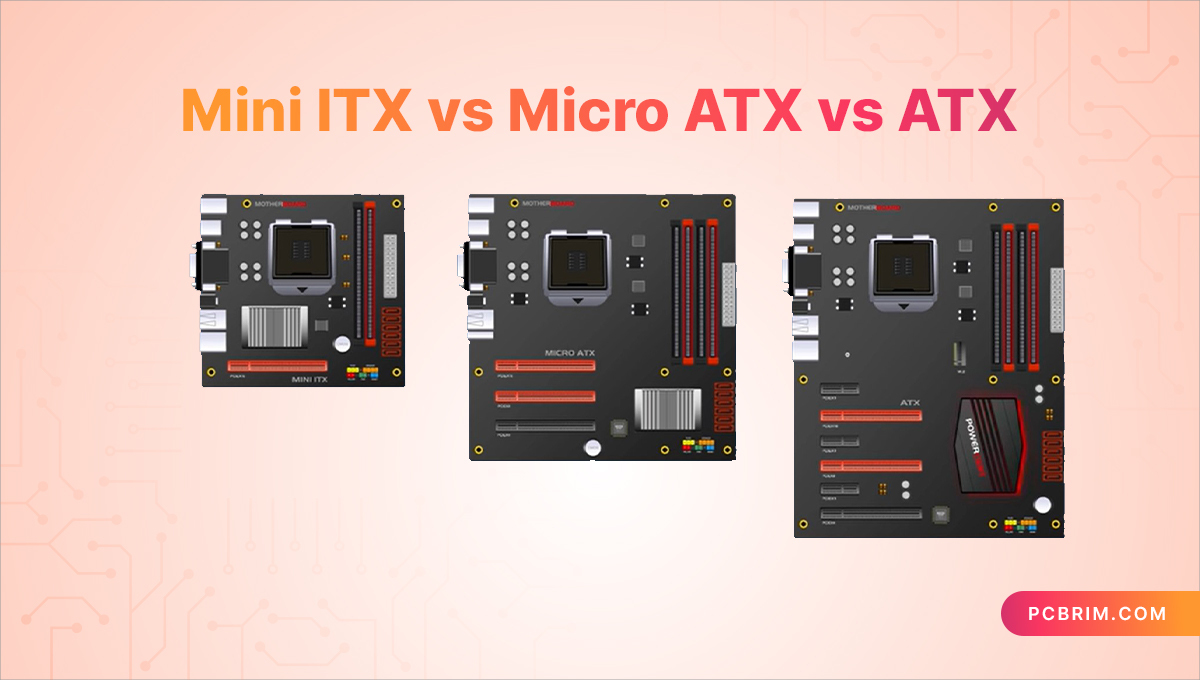
Mini ITX vs Micro ATX vs ATX A Detailed Comparison
1. Gaming PC: For all those hardcore gamers out there, ATX is the best form factor. However, this is only useful if you want to make use of the extra PCI-e slots. Otherwise, Micro ATX offers almost the same features but at a lower price. So, it's a close competition between Micro ATX and ATX form factor. 2.

ATX vs Micro ATX vs Mini ITX Which Should You Choose?
Now, as far the compatibility is concerned, a micro ATX case can support a mini-ITX motherboard. However, a mini-ITX case won't be able to host a micro-ATX motherboard. The same goes for power supply and other components as well. Usually, mid-tower cases are large enough to host most high-end graphics cards, including those with a tri-fan.

Motherboards Micro ATX vs Mini ITX vs ATX (Best to Buy?) (2022)
That means a mini ITX motherboard can have up to 32GB RAM (2x 16GB kit) while a micro ATX motherboard can have double RAM capacity up to 64GB. And, it can be pushed to 128GB if there's support for DDR4 RAM modules. E-ATX form-factor, on the other hand, gives more freedom when it comes to memory capacity.
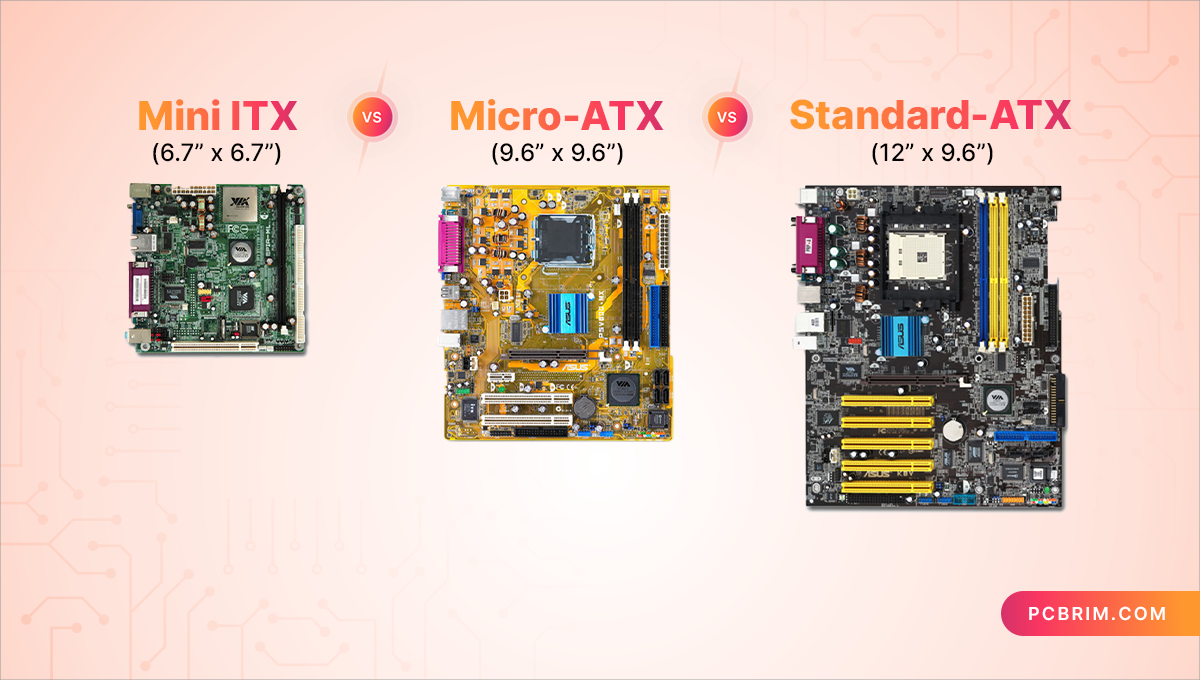
Mini ITX vs Micro ATX vs ATX A Detailed Comparison
An overview of the differences in motherboards and cases, and understanding the differences between Mini ITX Vs Micro ATX can help you distinguish which parts work best for your build. We'll cover the differences and then look at some of your best options that you could buy. Quick Navigation show Is Micro ATX the Same as Mini ITX?
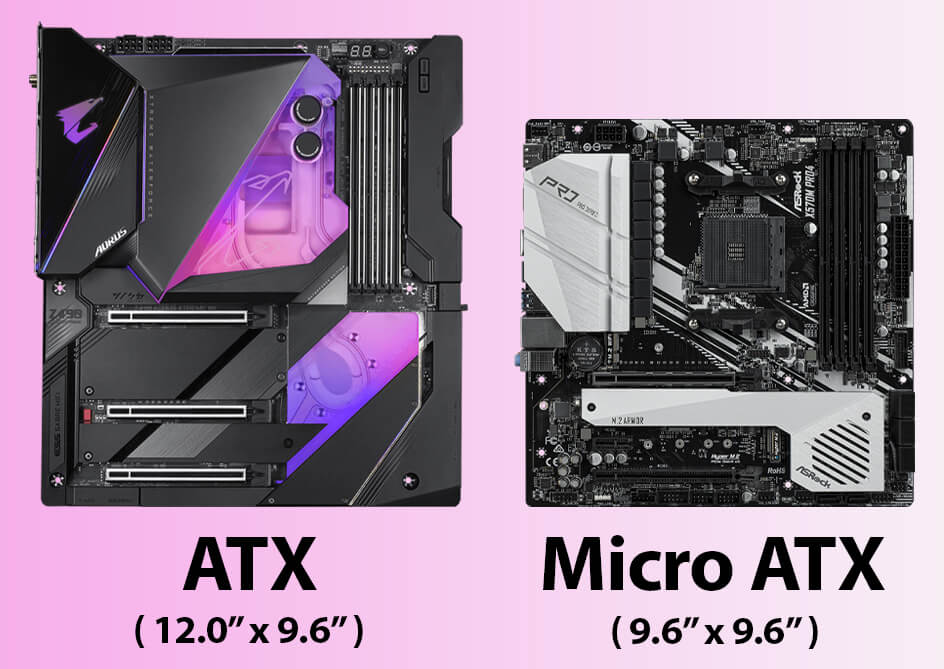
ATX vs Micro ATX vs Mini ITX Which Should I Choose?
Technology Explained ATX vs. Micro ATX vs. Mini ITX: Which Motherboard Size Is Right for You? By Arol Wright Published Aug 11, 2022 Motherboards come in all shapes and sizes, as you'll find when you dive into your PC shopping spree. But what size should you choose? Readers like you help support MUO.
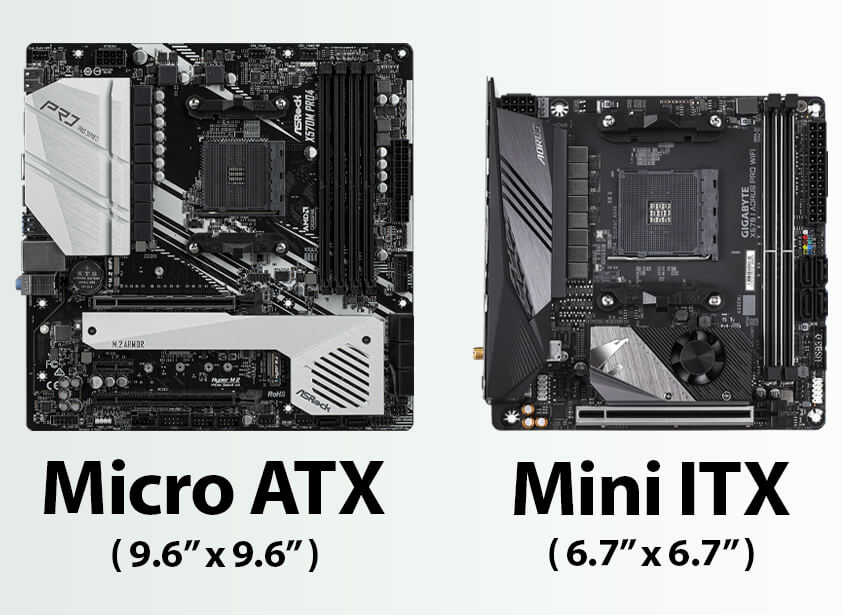
ATX vs Micro ATX vs Mini ITX Which Should I Choose?
Namely, Mini ITX motherboards come with only two RAM slots, whereas Micro ATX and ATX motherboards usually come with four. However, some high-end ATX motherboards can feature as many as eight RAM slots. That said, Mini ITX motherboards can currently only accommodate up to 32 GB of RAM if a 2×16 GB kit is installed.

The Complete Guide to Motherboard Sizes EATX vs ATX vs Micro ATX vs
Micro ATX. Micro ATX motherboards come even cheaper than standard ATX, while still offering decent features and lots of freedom to choose other components. They usually stand in the $100 - $200 range, but can definitely cost a lot more. A nice example includes the GIGABYTE B450M DS3H V2, coming in at a little over $120. Mini ITX
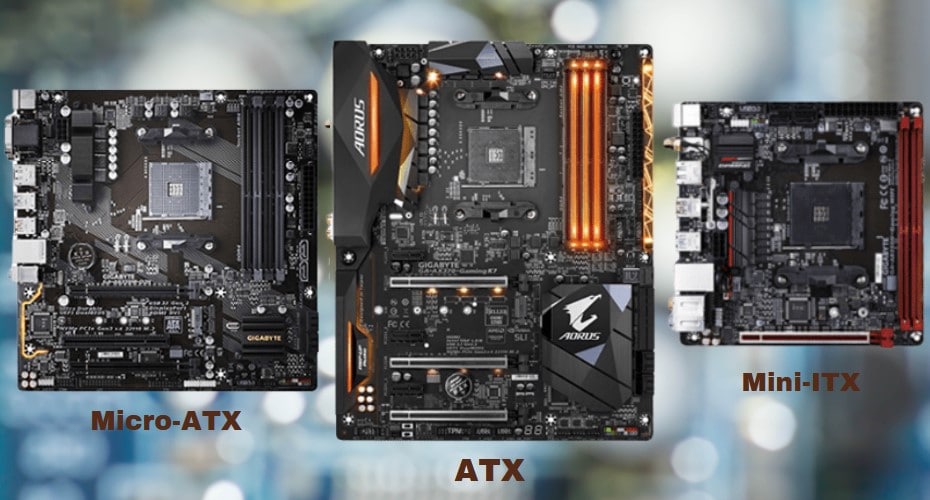
MicroATX vs MiniITX vs ATX Which Motherboard should you pick? Free
A Mini-ITX motherboard measures 6.7 by 6.7 inches (17 by 17 cm), while microATX motherboards are 9.6 by 9.6 inches (24.4 by 24.4 cm). If you do the math, you'll find that microATX motherboards are about 40% larger than Mini-ITX. Still, both are significantly smaller than ATX motherboards, which measure 12 by 9.6 inches (30.5 by 24.4 cm).
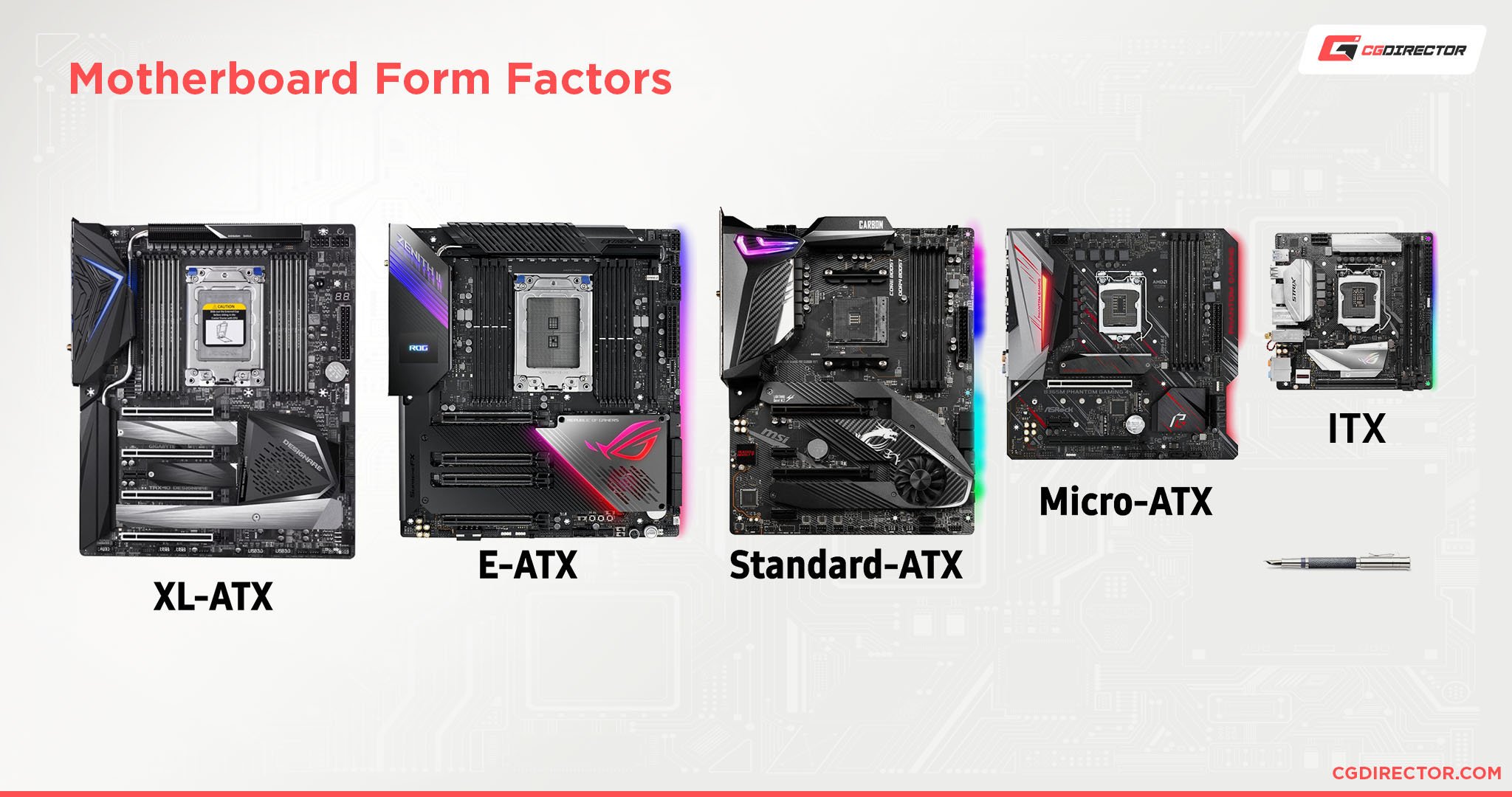
ATX vs MicroATX vs MiniITX What’s the Difference? (2022)
The Cooler Master Masterbox NR200 is one of the highest-rated mini-ITX cases on the market. With a starting price of $100, the NR200 is an 18.25-liter case that is available in standard black or.
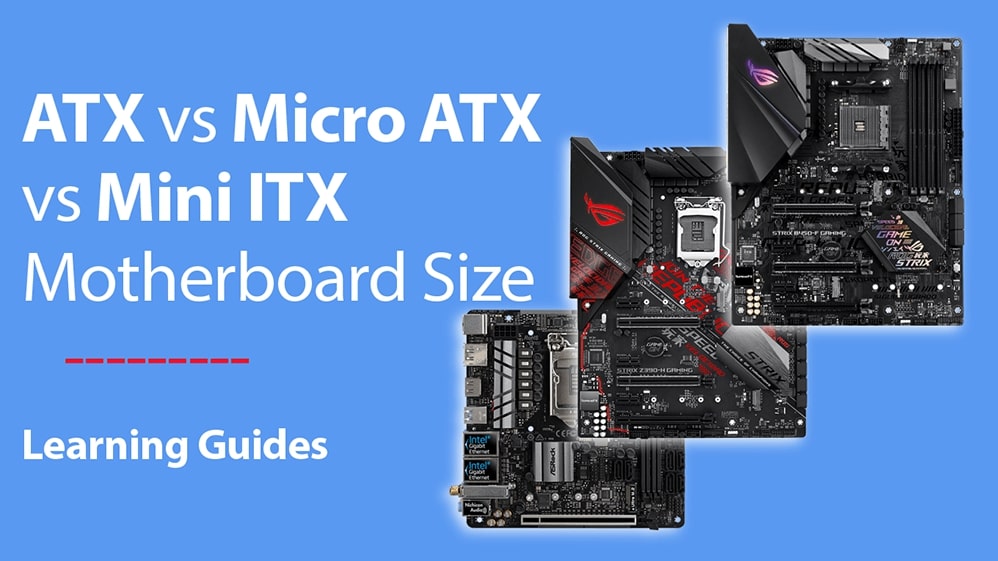
Micro ATX vs Mini ITX vs ATX Which Size is Right for You?
Poor expandability. 2. Micro ATX. Micro ATX bridges the gap in terms of its form factor. It does have more expansion slots than the mini ITX but still only up to a certain capacity. For instance, gamers can upgrade their RAMs and GPUs, but preparing these motherboards for crypto mining will be a stretch.
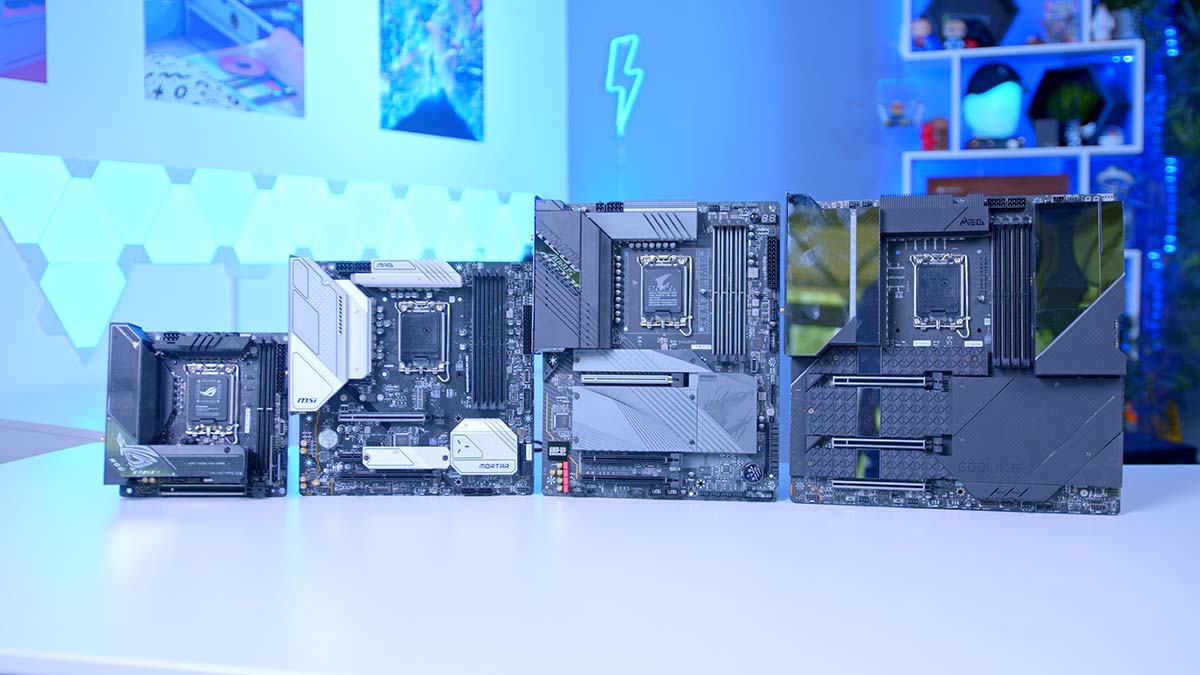
Mini ITX Micro ATX ATX Motherboard Sizes Explained Voltcave
Mini ITX vs. Micro ATX vs. ATX: What's the Difference? Let's compare each motherboard model in detail under various categories. Size and Form Factor: Space Management In the world of motherboards, size indeed matters. The standard ATX (Advanced Technology Extended) is the largest among the three, typically measuring 305mm x 244mm.